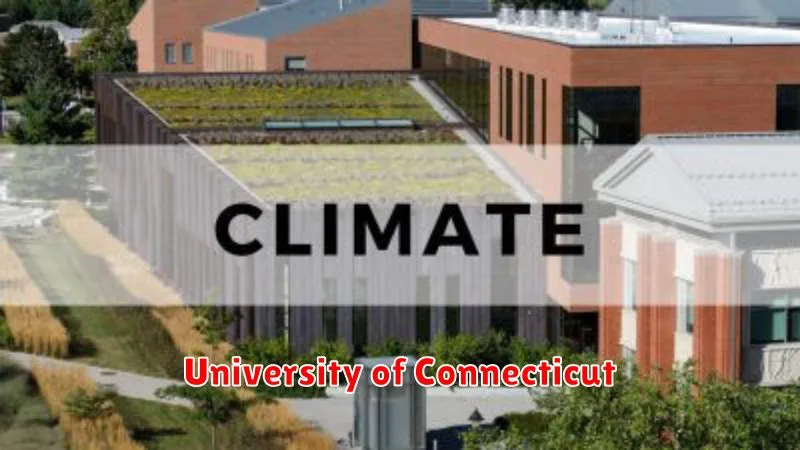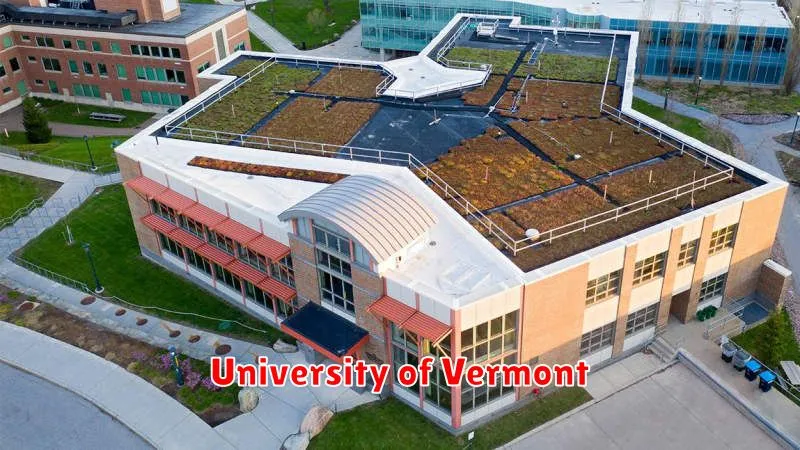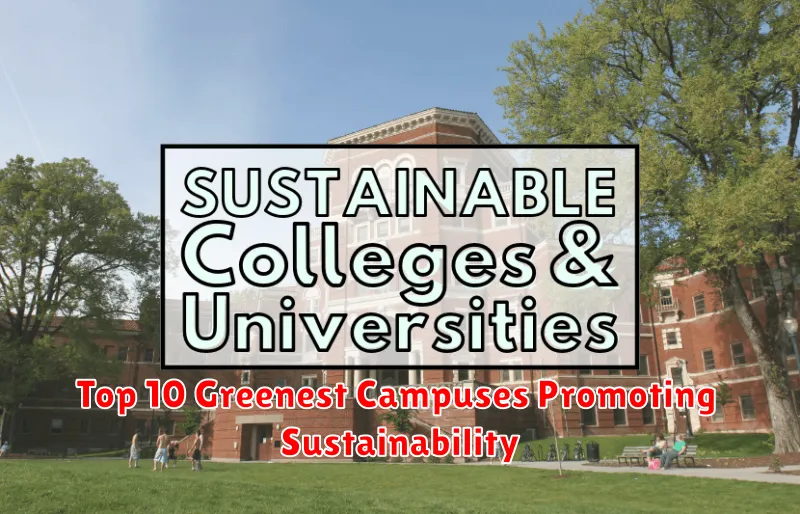In an era defined by climate change and a growing emphasis on environmental responsibility, institutions of higher education are stepping up to become leaders in sustainability. University campuses, often sprawling microcosms of cities, offer a unique opportunity to implement and showcase green initiatives. This article explores the top 10 greenest campuses worldwide, highlighting their innovative approaches to promoting sustainability through eco-friendly practices in areas such as energy efficiency, waste management, and sustainable transportation.
From cutting-edge renewable energy projects to comprehensive recycling programs and innovative green building designs, these institutions demonstrate a commitment to minimizing their environmental footprint. They serve as models for other universities and communities seeking to embrace a more sustainable future. Join us as we delve into the remarkable achievements of these top 10 greenest campuses and discover the impactful strategies they employ to cultivate environmental stewardship and inspire a global movement towards sustainability.
University of California, Davis

The University of California, Davis (UC Davis) is a leader in campus sustainability, earning a Platinum rating in the Sustainability Tracking, Assessment & Rating System (STARS). Their commitment to environmental stewardship is reflected in numerous initiatives across campus operations.
Key sustainability features at UC Davis include:
- Zero Waste by 2020 Goal: UC Davis has set an ambitious goal to achieve zero waste by diverting 90% of its waste from landfills.
- Sustainable Transportation: The campus promotes alternative transportation options like cycling, walking, and public transit, with extensive bike paths and a robust bus system.
- Water Conservation: Through efficient irrigation systems and water-wise landscaping, UC Davis strives to reduce its water footprint.
- Renewable Energy: The university invests in renewable energy sources, including solar power, to reduce reliance on fossil fuels.
UC Davis’s comprehensive approach to sustainability serves as a model for other institutions of higher education.
Arizona State University

Arizona State University (ASU) demonstrates a strong commitment to sustainability, earning its place among the greenest campuses. ASU’s dedication is evident through its comprehensive sustainability initiatives, encompassing everything from renewable energy to waste reduction.
One notable program is the university’s focus on solar energy. ASU has invested heavily in solar power installations across its campuses, significantly reducing its reliance on traditional energy sources. This commitment to clean energy helps minimize the university’s carbon footprint and contributes to a cleaner environment.
Beyond solar energy, ASU also prioritizes water conservation through innovative landscaping practices and efficient water management systems. The university also engages in robust recycling and composting programs, diverting significant waste from landfills.
University of British Columbia (UBC)

The University of British Columbia (UBC) consistently ranks high in global sustainability assessments. Its commitment to a greener future is evident across its two main campuses—Vancouver and Okanagan. UBC’s holistic approach integrates sustainability into research, teaching, operations, and community engagement.
Key initiatives at UBC include a robust Climate Action Plan aiming for significant greenhouse gas emission reductions. The university actively pursues renewable energy sources and promotes energy efficiency in buildings. Sustainable transportation options are encouraged through extensive cycling infrastructure and public transit access.
UBC also prioritizes waste reduction and resource conservation programs. From composting and recycling initiatives to water conservation strategies, the university strives to minimize its environmental footprint. Furthermore, UBC emphasizes sustainable food systems, sourcing local and sustainable food options for its dining facilities.
UBC’s dedication to creating a sustainable learning environment extends beyond its operational practices. The university offers a wide range of academic programs focused on sustainability, fostering the next generation of environmental leaders.
University of Connecticut

The University of Connecticut (UConn) demonstrates a strong commitment to sustainability through various initiatives. UConn’s 2020 Climate Action Plan sets ambitious goals, including achieving carbon neutrality by 2030.
Key areas of focus include renewable energy development, with projects such as solar installations and fuel cell technology. The university also prioritizes waste reduction through comprehensive recycling and composting programs. Sustainable transportation is encouraged with bike-sharing initiatives and improvements to public transit access.
UConn also incorporates sustainability into its curriculum, offering a range of related courses and research opportunities. This dedication to educating students on environmental issues is a core component of their sustainability mission.
Middlebury College

Middlebury College stands as a leader in campus sustainability, earning a STARS Gold rating. Their commitment is evident in their ambitious goal of achieving carbon neutrality by 2028. This aggressive target demonstrates their dedication to mitigating climate change.
Key initiatives include a biomass gasification plant which provides a significant portion of the college’s heating needs from locally sourced wood chips. This reduces reliance on fossil fuels and supports sustainable forestry practices. Furthermore, Middlebury emphasizes energy efficiency through building retrofits and sustainable design in new construction.
The college also prioritizes sustainable food systems. Their dining halls feature locally sourced ingredients, and they actively compost food waste, minimizing their environmental impact. Through these and other comprehensive programs, Middlebury College sets a high standard for sustainability in higher education.
Stanford University

Stanford University demonstrates a deep commitment to sustainability, integrating environmentally responsible practices throughout its operations and academic pursuits. The university’s dedication to a greener future is evident in several key areas.
Energy Efficiency: Stanford actively pursues energy efficiency through various initiatives, including building retrofits and the use of renewable energy sources. The university’s Central Energy Facility, for instance, utilizes highly efficient combined heat and power technology.
Sustainable Transportation: Promoting sustainable transportation options is another priority. Stanford encourages bicycling, walking, and the use of public transport, providing extensive resources and infrastructure to support these alternatives to personal vehicles.
Water Conservation: Water conservation is a critical focus, especially given California’s climate. Stanford implements a range of water-saving measures, from efficient irrigation systems to promoting water-wise landscaping practices across campus.
University of Vermont

The University of Vermont (UVM) stands as a leader in campus sustainability, earning high praise for its comprehensive approach. UVM’s commitment is woven into its academics, operations, and community engagement.
A key aspect of UVM’s success is its Real Food Campus Commitment, aiming to source 25% real food by 2025, focusing on local, fair, ecologically sound, and humane food systems. The university also boasts impressive waste diversion rates, actively promoting composting and recycling programs across campus.
UVM’s innovative energy initiatives further solidify its green reputation. These include investments in renewable energy sources and energy efficiency upgrades to reduce its carbon footprint.
The university’s commitment to educating students about sustainability is another core component of its green initiatives. UVM offers a variety of academic programs and research opportunities focused on environmental studies and sustainable solutions.
Oberlin College

Oberlin College has a long-standing commitment to environmental stewardship. Established in 1833, it has consistently integrated sustainability into its campus operations and academic curriculum.
A key initiative is the Oberlin Project, a joint effort between the college and the city of Oberlin to create a climate-positive community. This involves reducing greenhouse gas emissions, creating a sustainable local food system, and promoting renewable energy sources.
Oberlin’s commitment to local food sourcing is notable. The college dining halls prioritize locally grown, organic, and fair-trade products, significantly reducing food miles and supporting regional agriculture.
The campus features a robust recycling and composting program, diverting a large percentage of waste from landfills. Students are actively engaged in promoting sustainable practices throughout the campus community.
Furthermore, Oberlin offers numerous environmental studies programs, providing students with the knowledge and skills to address critical environmental challenges.
Portland State University

Portland State University (PSU) is a leading example of urban sustainability in higher education. Located in the heart of Portland, Oregon, the university has deeply integrated sustainable practices throughout its campus and operations.
PSU’s commitment to climate action is evidenced by its Climate Action Plan, aiming for carbon neutrality. The university actively promotes alternative transportation, encouraging biking, walking, and public transit use among its students and staff. Its location within a highly walkable city further facilitates this goal.
Green building principles are also central to PSU’s sustainability efforts. Many buildings on campus are LEED certified, demonstrating their efficient use of resources and minimal environmental impact. The university’s dedication to sustainable food systems is reflected in its support of local farmers and its commitment to reducing food waste.
University of New Hampshire

The University of New Hampshire (UNH) is a leader in campus sustainability, earning a STARS Gold rating. Their commitment is evident across campus operations.
Dining plays a key role in UNH’s sustainability efforts. They prioritize locally sourced food and have robust composting programs. Energy efficiency is also a major focus, with initiatives to reduce consumption and transition to renewable sources.
UNH’s academic programs further strengthen their commitment to sustainability. Students can pursue degrees and research opportunities focused on environmental issues, equipping them to be future leaders in the field.
The university’s organic dairy farm provides research opportunities and locally produced milk, showcasing its dedication to sustainable agriculture.

